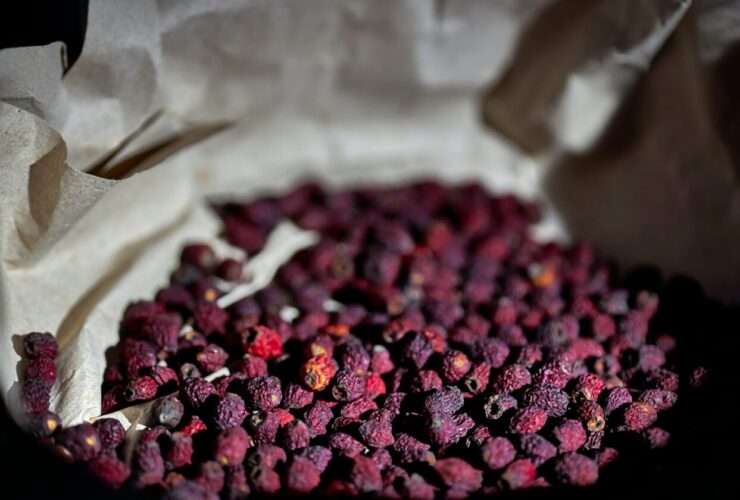Understanding the impact of specific foods on health conditions is crucial for individuals seeking to improve their well-being. In this article, we delve into the relationship between Bok Choy and the ketogenic diet, exploring how this nutritious vegetable can benefit individuals following a keto lifestyle. By examining the nutritional value and potential effects of Bok Choy, we aim to provide valuable insights for those managing health conditions and seeking dietary solutions.
Bok Choy is keto-friendly, making it a valuable addition to a ketogenic diet. With its low carbohydrate content and rich array of nutrients, Bok Choy aligns well with keto principles, supporting individuals in achieving their health and dietary goals.
Bok Choy, also known as Chinese cabbage, is a leafy green vegetable renowned for its crisp texture and mild, sweet flavor. Bok Choy is a favorable option for the ketogenic diet, which emphasizes low carbohydrate intake and high fat consumption due to its minimal carb content and nutrient density. Understanding the role of Bok Choy in a keto diet involves examining its nutritional components and how they contribute to overall health.

Incorporating Bok Choy into a ketogenic diet offers many health benefits that contribute to overall well-being. This leafy green vegetable is low in carbohydrates and rich in essential vitamins and minerals, making it a valuable addition to any health-conscious diet.
Vitamins A, C, and K: Bok Choy is a powerhouse of vitamins A, C, and K, with just one cup providing significant amounts of these nutrients. Vitamin A supports healthy vision, skin, and immune function, while vitamin C acts as a potent antioxidant, protecting cells from damage and enhancing immune response. Vitamin K is essential for blood clotting and bone health, helping to prevent osteoporosis and promote optimal bone density.
Calcium: Bok Choy is an excellent source of calcium, a mineral crucial for maintaining strong bones and teeth. Adequate calcium intake is essential for individuals of all ages to prevent osteoporosis and reduce the risk of fractures and bone-related diseases. Incorporating Bok Choy into the diet can help meet daily calcium needs and support bone health over the long term.
Iron: Iron is vital for transporting oxygen throughout the body and supporting energy production. Bok Choy contains significant amounts of iron, making it particularly beneficial for individuals at risk of iron deficiency or anemia. Iron-rich foods like Bok Choy can help alleviate symptoms of fatigue, weakness, and poor concentration, promoting overall vitality and well-being.
Potassium: Bok Choy is a good source of potassium, an electrolyte that plays a crucial role in maintaining fluid balance, regulating blood pressure, and supporting heart health. Adequate potassium intake reduces the risk of stroke, heart disease, and kidney stones. Including Bok Choy in the diet can help individuals achieve optimal potassium levels and support cardiovascular health.
Dietary Fiber: Bok Choy contains dietary fiber essential for digestive health and promoting feelings of fullness and satiety. Fiber helps regulate bowel movements, prevent constipation, and support a healthy gut microbiome. By including Bok Choy in meals, individuals can increase their fiber intake and support digestive regularity, ultimately contributing to overall well-being.
Bok Choy offers many health benefits, from supporting immune function and promoting bone health to aiding digestion and managing weight. Its nutrient-rich composition and low carbohydrate content make it an ideal choice for individuals following a ketogenic diet or seeking to improve their overall health and well-being. Incorporating Bok Choy into meals allows individuals to harness the nutritional power of this versatile vegetable and optimize their dietary choices for optimal health outcomes.
While Bok Choy is keto-friendly, it’s essential to consider portion sizes and consumption frequencies to optimize its benefits. Incorporating Bok Choy into meals in moderate portions ensures a balanced intake of nutrients without exceeding daily carbohydrate limits. Individuals with specific health conditions, such as kidney disease or gastrointestinal issues, should consult healthcare professionals to determine appropriate serving sizes and dietary recommendations.
Integrating Bok Choy into a keto diet can be both simple and versatile. There are numerous creative ways to enjoy this nutritious vegetable, from adding raw Bok Choy to salads and sandwiches to incorporating cooked Bok Choy into stir-fries and soups. For those unable to consume Bok Choy due to allergies or personal preferences, alternative options like spinach, kale, Swiss chard, and broccoli can provide similar nutritional benefits while complementing a ketogenic lifestyle.
In conclusion, Bok Choy emerges as a valuable asset for individuals following a ketogenic diet, offering a wealth of nutrients and health benefits. Individuals can make informed dietary choices to support their health and well-being by understanding the relationship between Bok Choy and keto. Incorporating Bok Choy into a balanced and health-conscious diet can enhance the overall nutritional quality of meals while promoting optimal health outcomes.
References
(1)Health Benefits of Bok Choy
https://www.webmd.com/diet/health-benefits-bok-choy
(2)Diet Review: Ketogenic Diet for Weight Loss
https://www.hsph.harvard.edu/nutritionsource/healthy-weight/diet-reviews/ketogenic-diet/
(3) The health benefits of bok choy
https://www.medicalnewstoday.com/articles/280948
Was this helpful?

Joseph Emb, RDN
Founder of StyleVitally.com | Registered Dietitian & Wellness Advocate
What I Cover:
I’m passionate about connecting nutrition science and everyday wellness to help people live healthier, more vibrant lives. I write about evidence-based nutrition, mindful eating, sustainable lifestyles, and holistic well-being at StyleVitally.com.
My Background:
The University of Texas in Austin, where I earned my Dietetics diploma, laid the groundwork for my nutrition and health career. My training and hands-on experience taught me the science and art of using nutrition to enhance health and well-being.
Professional Journey:
I’m an RDN with lots of experience. I’ve helped people seeking tailored nutritional recommendations in clinical settings and community outreach programs. My constant learning and professional development ensure that my recommendations are always based on the latest evidence.
Ethical Commitment:
My practice prioritizes integrity. My content is transparent and objective, following the most significant ethical standards. I can give my audience unbiased advice because I’m not affiliated with food businesses or industry associations. I want to help people make informed health decisions that match their values and ambitions.
Join Me on the Wellness Journey:
Join me on the path to vitality and well-being, whether facing nutritional issues, seeking sustainable lifestyle changes, or simply wanting a better, happier you. We’ll discover how diet, mindfulness, and holistic well-being can maximize your potential.










Leave a Reply
View Comments